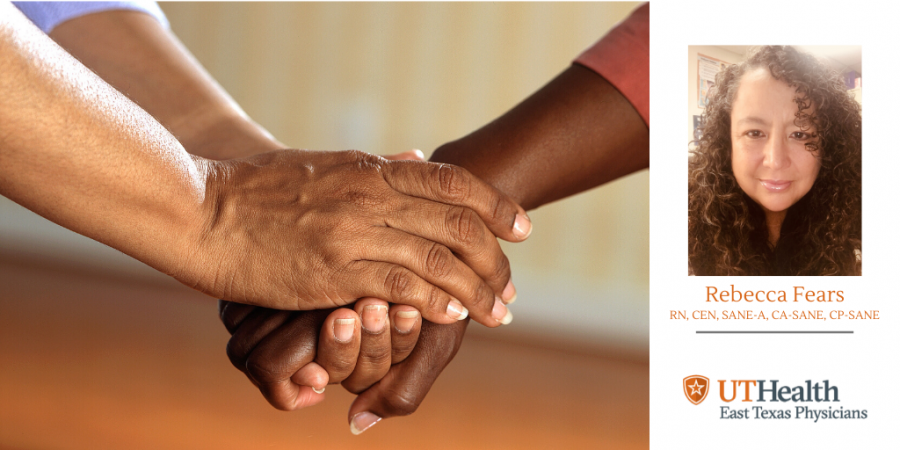
Did you know that as few as one in five incidents of sexual assault is reported? Because of the lack of reporting, survivors often don’t receive the medical care or emotional support needed to begin the path to healing.
I am Rebecca Fears, one of nine forensic nurses at UT Health East Texas. Forensic nurses work with survivors of sexual assault to receive proper care and treatment. We are registered nurses that have completed extensive training to earn certification as sexual assault nurse examiners (SANEs). Our training covers treating and supporting survivors of sexual assault, as well as how to properly collect and handle evidence needed by law enforcement.
Many SANE nurses devote as much as three or more hours of consultation with an individual survivor. We give survivors medically accurate information in a safe space, so they can determine what is best about their future.
SANE nurses need to be emotionally supportive, yet professional, for patients during treatment of any injuries, all the while collecting evidence. It is not unusual for SANE nurses to be called to testify in criminal cases.
While SANE nurses provide support and care immediately following an assault, the effects of such a trauma can be long-lasting. If you have a friend or family member who has survived sexual assault, it is important that you continue to provide support as they journey to healing.
There’s no timetable for healing. So remember, if someone trusted you enough to disclose their assault to you, consider the following ways to show your continued support.
- Avoid judgment. It can be difficult to watch a survivor struggle with the effects of sexual assault for an extended period of time. Avoid phrases that suggest they’re taking too long to recover such as, “You’ve been acting like this for a while now,” or “How much longer will you feel this way?”
- Check in periodically. The assault may have happened a long time ago, but that doesn’t mean the pain is gone. Check in with the survivor to remind them you still care about their well-being.
- Know your resources. You’re a strong supporter, but that doesn’t mean you’re equipped to manage someone else’s health. A good local resource is the East Texas Crisis Center in Tyler. They provide a 24/7 hotline, 1-800-333-0358, and more information on the intervention and advocacy services they offer can be found online at etcc.org.

